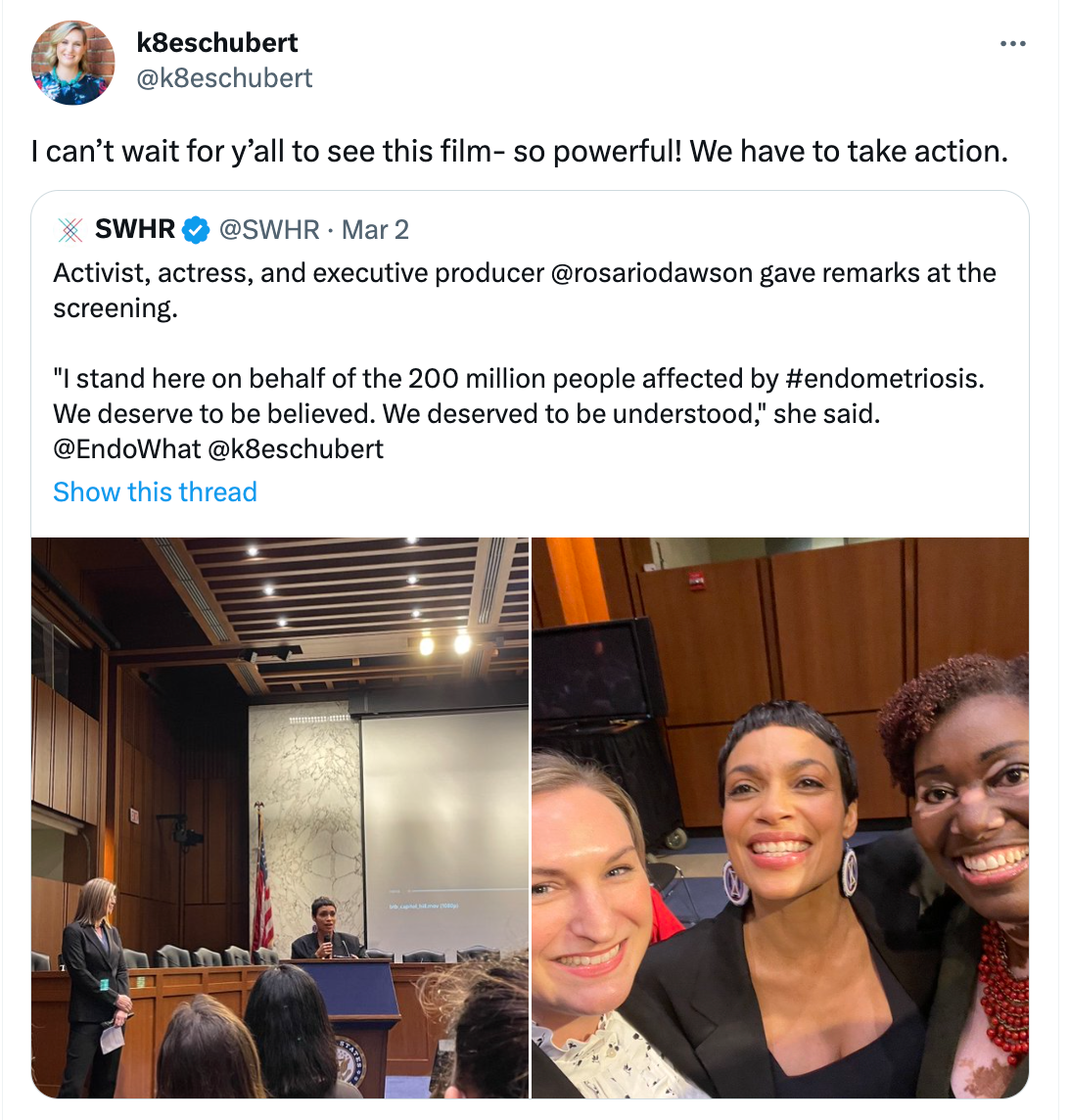SWHR was pleased to attend a special screening of the “Below The Belt” documentary on Capitol Hill last week to kick off Endometriosis Awareness Month—held each March. The film was executive produced by former U.S. Secretary of State Hillary Rodham Clinton, former Senator Orrin Hatch, and actresses and advocates Rosario Dawson, Corinne Foxx, and Mae Whitman. The screening was hosted by Senators Elizabeth Warren and Mitt Romney and Dawson.
“Below the Belt” tells the stories of four endometriosis patients searching for answers about treatment, their journeys revealing widespread problems in the U.S. health care and research ecosystems. “[Endometriosis is] a disease that’s been ignored, overlooked, and dismissed for far too long. It’s time we all do something about it,” said film director and producer Shannon Cohn during the screening. “The goal of this film is to change both hearts and minds.”
Endometriosis affects an estimated 1 in 10 individuals, according to the Office of Women’s Health at the U.S. Department of Health & Human Services. This estimate is nearly the same portion of individuals impacted by diabetes in the United States, but federal funding for research in treatment is significantly less for endometriosis than for diabetes, shared Heather Guidone, program director of the Center for Endometriosis Care during the post-film panel.
Patients from the film, including Jenneh Rishe, RN, author and founder of The Endometriosis Coalition, were also in attendance to share their personal experience.
To improve endometriosis research, outcomes, and awareness, the “Below The Belt” team ended the evening by calling for a congressional hearing on endometriosis with five specific aims:
- Develop a national public health campaign for awareness and education
- Increase funding on endometriosis and endometriosis treatment research
- Improve patient access to disability benefits under the Americans with Disabilities Act
- Expand access to treatment and standardization of evidence-based care
- Create a “National Action Plan on Endometriosis”
SWHR is proud to continue elevating the work of organizations that advance endometriosis education and research during this Endometriosis Awareness Month.
Do you have an endometriosis story to share? SWHR wants to hear from you. Share your health story with us by visiting swhr.org/shareyourstory.
Check out SWHR’s Endometriosis Patient Toolkit today and stay tuned for additional patient and policy resources from SWHR and our peers this spring.


